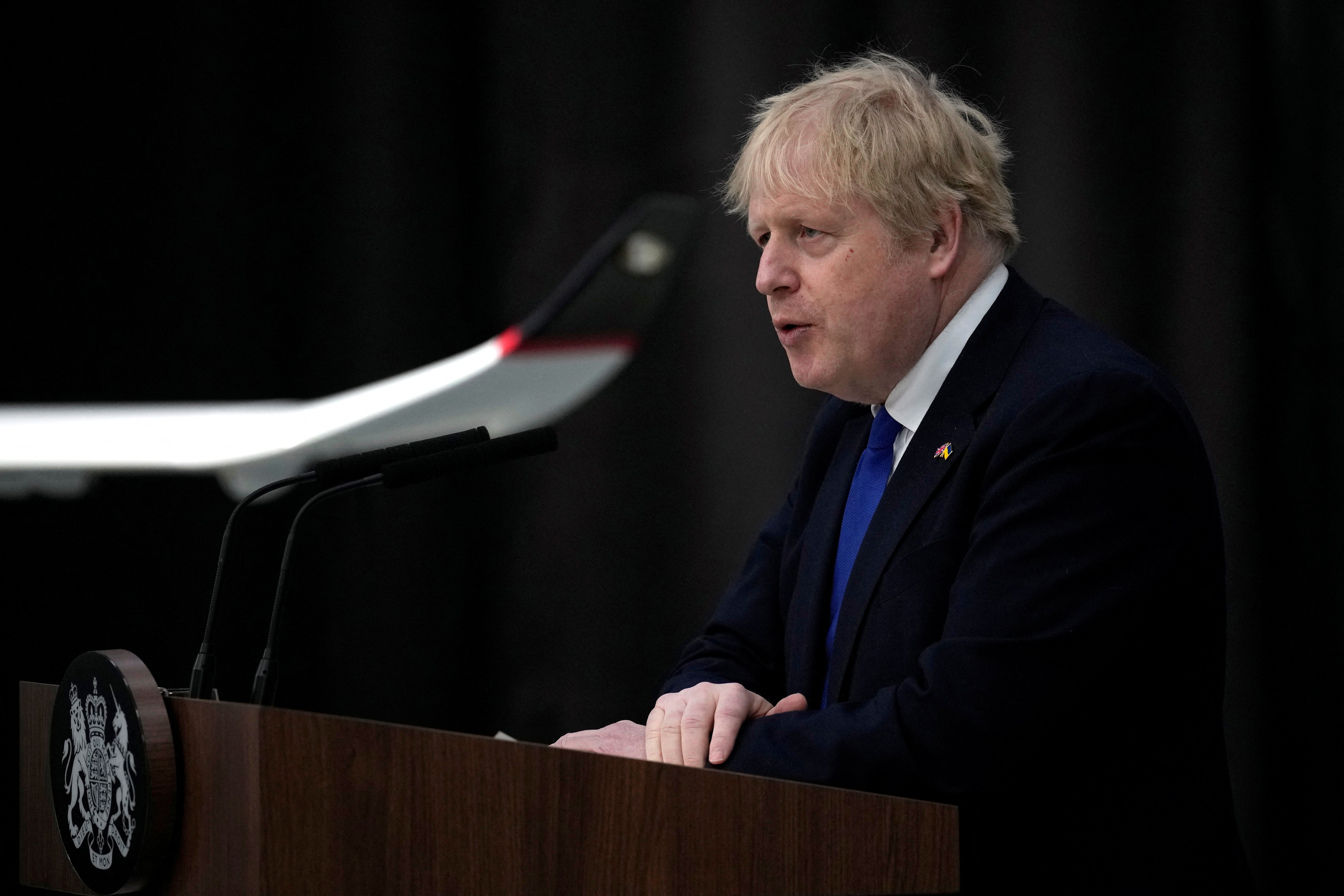The government’s Rwanda scheme may be unworkable, but it is dangerous for Labour
Johnson’s policy might never be put into action, but it will be effective electorally, writes John Rentoul


The government’s plan to fly asylum seekers to Rwanda may never happen, but it could nevertheless shape the next general election. It was notable that Yvette Cooper, the shadow home secretary, condemned it as “unworkable, unethical and extortionate” in her first response last night.
By lunchtime today, when Keir Starmer commented on it to the BBC, the Labour line had subtly changed. The plan was “unworkable and extortionate”, but the unethical bit had disappeared. Instead, the Labour leader’s main point was that the plan was “a desperate announcement by a prime minister who just wants to distract from his own law-breaking”.
Starmer and his advisers have obviously realised that however cruel the scheme may seem to them, many of the voters they hope to win over think it is a good idea. So Starmer emphasised its impracticality and cost – and scored an easy point by agreeing with the common perception that the policy is an attempt to distract from the prime minister’s penalty for breaking Covid law.
Of course, that must be part of Boris Johnson’s thinking, but he wanted to announce the plan last week before the penalty notice pinged into his inbox. Starmer is entitled to claim that the prime minister is “desperate” to change the subject, but this is a subject that Johnson is extremely keen to talk about at any time – and to go on talking about between now and the general election.
The problem of small boats crossing the Channel has been eating away at the Conservatives’ base of support for two years. When David Canzini, Johnson’s deputy chief of staff, set out the government’s priorities for the next election in a Downing Street briefing for special advisers, small boats were the fifth of five (behind Brexit, the cost of living, the NHS and crime). Last on the list but still important, mainly because of the issue’s ability to undermine the claim to have Taken Back Control of Britain’s borders.
Starmer and Cooper are right that the Rwanda policy is unworkable and expensive. It is unworkable because it will be challenged in the courts. It is hard to see how it is compatible with the UK’s obligations to refugees under the European Convention on Human Rights or the Geneva Convention. Each case will be fought to the door of the plane taking off for Kigali. What is more, the army and Royal Navy will be reluctant to be drawn into what is essentially policing and will, I predict, find ways of sabotaging the policy.
And it will be expensive. Andrew Mitchell, the Tory former international development secretary, said it would be cheaper to “put adult asylum seekers up at the Ritz and send under-18s to Eton” than to put them in offshore processing centres. It doesn’t seem that the government intends to have processing centres in Rwanda, intending instead just to dump the asylum seekers there and let them fend for themselves, but even so, the policy will be costly: detention centres, court cases and flights.
Unfortunately for Starmer, neither of those criticisms is likely to shift voters who aren’t already appalled by the policy. Johnson would relish a series of legal challenges, declaring war in his speech on the “formidable army of politically motivated lawyers who for years have made it their business to thwart removals and frustrate the government”. It would allow him to pose on the side of the people against the elite of Islington human rights barristers.
To keep up to speed with all the latest opinions and comment, sign up to our free weekly Voices Dispatches newsletter by clicking here
Nor is cost a persuasive factor: the prime minister’s argument is that the prospect of removal to Rwanda is a deterrent to new arrivals – and the more publicity the policy receives, the more of a deterrent it will be. The Australian policy of offshore processing, for example, cost an absurdly large sum for each individual detainee, yet it, combined with a policy of turning back boats in the open sea, reduced the number of arrivals to zero, at which point the cost of the policy also fell to zero.
The real danger of the policy to Labour, though, is the question asked by Johnson in his speech: “I say to those who would criticise our plan today, we have a plan; what is your alternative?”
To his credit, Starmer had a stab at a couple of soundbites – arrangements with our partners in France and speeding up the processing of asylum claims – but neither of those is very convincing. The policy of paying the French to police their coastline has not prevented the number of small boats making the dangerous crossing from rising sharply. Dealing with asylum claims more efficiently, meanwhile, would only increase the numbers going through the system – two-thirds of applications are ultimately successful. This would increase the incentive for people to attempt the crossing, and, if more safe legal routes were opened up, the numbers would rise even more.
Johnson may have been “desperate”, and his policy may never be put into action, but it will be effective electorally. Starmer and Cooper are now in an equally urgent search for more humane policies that could safely see them through an election campaign.






Join our commenting forum
Join thought-provoking conversations, follow other Independent readers and see their replies
Comments